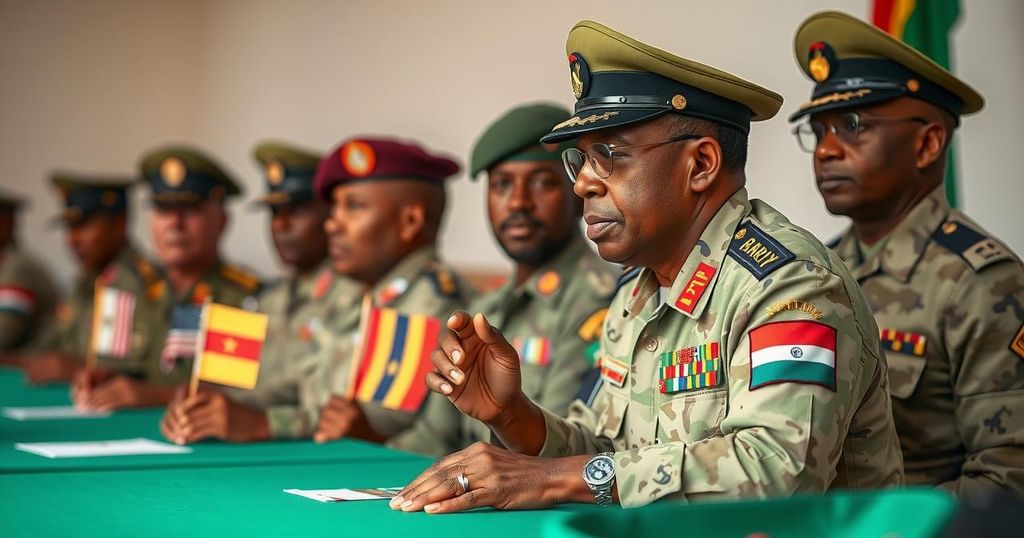Chad’s General Election: Low Turnout Amid Opposition Boycott Calls

Chad held a general election aimed at concluding military rule, but turnout was low at 38%, largely due to opposition calls for a boycott. Voters expressed skepticism toward the electoral process amid claims that results were predetermined. Concerns over electoral integrity were raised with allegations of missing ballots, while President Deby urged citizens to participate in this ‘historic’ election as Chad seeks a transition to democracy.
Chad conducted a general election on Sunday, a pivotal event as stated by the government, aimed at concluding a three-year period of military governance. Initial reports indicated a disheartening voter turnout of 38%, with significant calls for a boycott from opposition factions. Despite assurances from election officials attributing low participation to adverse weather, opposition leaders contended that the election outcome had been predetermined. Success Masra, leader of the Transformers party, claimed the majority of citizens heeded the call to abstain from voting, envisioning a near-complete boycott.
This election is particularly critical as it follows President Mahamat Idriss Deby Itno’s military ascent to power in 2021, subsequent legitimization through a contested presidential election, and the ongoing struggle for democratic transition. While Deby urged eligible voters to participate, asserting the significance of the day, detractors remained skeptical. Observers noted the lack of genuine voting credibility in Chad, reflecting sentiments from citizens like Herve Natouingan, who deemed voting as futile. Patrice Lumumba Deoumoundou expressed his hopes for systemic changes, including job creation and equitable rights.
Amidst concerns about electoral integrity, the Democratic Party of the Chadian People reported the mysterious disappearance of a thousand ballots before the voting, urging vigilant observation to counteract alleged corrupt practices. This electoral process unfolds against a backdrop of unrest brought on by Boko Haram activities, altering relations with France, and allegations of Chadian involvement in Sudan’s conflicts. As officials maintain that the elections represent a crucial step toward democracy, the road ahead remains fraught with uncertainties following decades of iron-fisted rule.
Chad has been under military rule since the death of longtime leader Idriss Deby in April 2021. His son, Mahamat Idriss Deby Itno, swiftly assumed leadership with promises of transitioning to a democratic government. The current elections are framed as a significant move towards restoring civilian governance and addressing the concerns of a war-weary populace. However, electoral integrity has been a recurring issue, leading to skepticism and calls for boycotts from opposition parties. Furthermore, the ongoing security challenges posed by insurgent groups in the region further complicate the political landscape and the push towards democracy in Chad.
In conclusion, the general election in Chad symbolizes a crucial phase in the nation’s transition from military rule, despite severe voter apathy fueled by calls for boycott and concerns over the integrity of the electoral process. With a turnout of just 38%, the opposition’s successful messaging indicates a significant divide between the governing authority and civilian voices. The election’s outcome may influence political stability and efforts for societal reform amid ongoing security threats and economic challenges, leaving the path forward unclear for Chad’s democratic aspirations.
Original Source: www.wyomingnewsnow.tv








